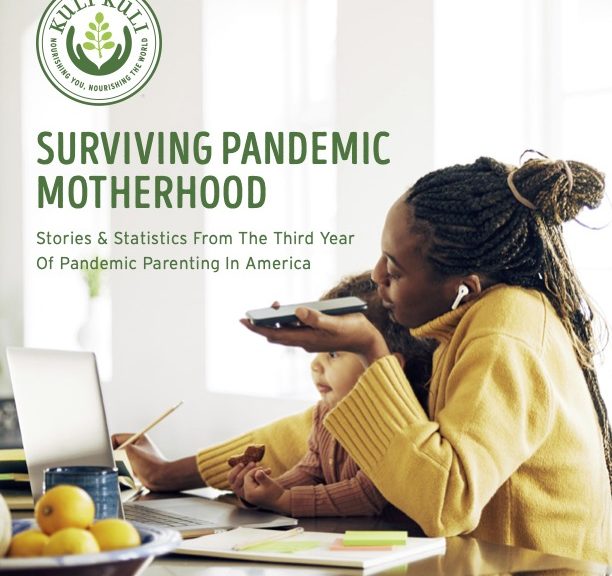
New 2022 Report Reveals 5 Key Findings On The State Of
Working Mothers as Pandemic Continues
A Mom meme recently said ‘the juggle is real.’ It’s a constant struggle. This has been the case for moms, with no national or local structures to help families survive and thrive. The pandemic served to uncover the deep fissures, under the surface, of how mothers are juggling it all; or not at all.
OAKLAND, Calif. (PRWEB)
February 02, 2022
Kuli Kuli, a mom-led superfood company, announced today the release of the Surviving Pandemic Motherhood report, which offers a unique opportunity to hear directly from working moms about their experiences of working and parenting during the pandemic. This report explores what business leaders and employers can do to attract and retain moms in the workforce.
This report was created in partnership with mom-led companies Sylvatex and Uncommon Cacao, and written in collaboration with researchers from The University of California San Francisco, The University of California Berkeley, The University of California Los Angeles, and Northeastern University.
Over 1,000 moms were surveyed, and 265 moms shared their pandemic survival stories for the chance to win a SuperMom Award, which included $10,000 in cash prizes and a year of superfood chocolate. Five key findings were identified:
1. The Mommy Burden. With loss of childcare and prevalence of traditional gender norms, many moms became the “default parent,” shouldering the majority of the burdens.
2. The Breaking Point. As we enter year three of the pandemic, working moms are at breaking point. 53% of working moms are getting less than 6 hours of sleep per night (7-9 hours is recommended). More than a fifth of working moms (23%) have no time for self-care, including healthy eating, exercise, or connecting with friends.
3. Workplace Discrimination. Many moms experienced discrimination in the workplace as they struggled to balance the responsibilities they disproportionately shouldered.
4. Workforce Exodus. Discrimination, childcare challenges and personal mental health concerns prompted 48% of moms surveyed to leave the workforce or switch to part-time.
5. Flexibility Works. Working moms with flexible, remote jobs, and empathetic employers stayed in the workforce, with 79% of moms saying they prefer remote work. Enabling flexible hours and paid time off are the top two things employers can do.
All of these challenges were more acute for moms of color and low-income mothers.
Working moms are an important segment of the labor force, and their departure from the workforce stresses an already impacted labor market. According to the Center for American Progress, if moms do not come back into the workforce, it will cost our country $64.5 billion.
Read the entire report here. To learn more, or access interviews and additional data, contact Elisette Carlson at SMACK! Media at: elisette@smackmedia.com or 858-735-2711.
Share article on social media or email:

